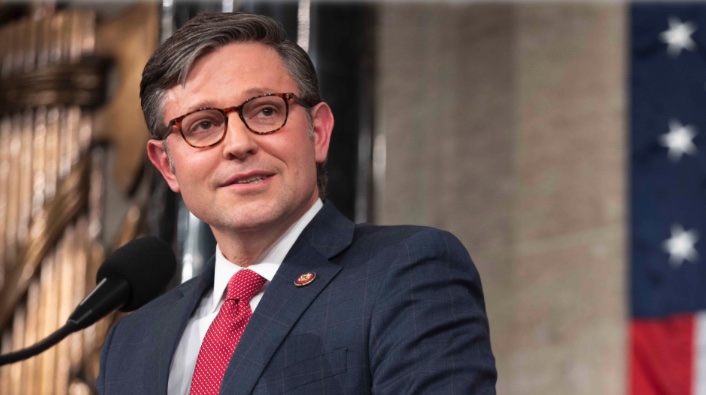The Role of Pensions, IRAs, and Social Security for Financial Stability
PRAY FIRST for the leaders and policymakers to continue to provide and sustain financial security that provides fairness and stability for retirees.
Speak up for those who cannot speak for themselves, for the rights of all who are destitute. Speak up and judge fairly; defend the rights of the poor and needy. Proverbs 31:8-9
Retirement. Savings. Planning. Budgets. Social Security. These are terms we frequently hear when inquiring about our own retirement planning. How much will I need to save in order to live comfortably once retired? Will there be enough savings if inflation continues to increase? Many times, we hear about pensions, IRAs, and 401(k)s. But do we truly understand what they are designed to do? And what influence does the government have as it creates monetary and tax policies that directly impact the ability of Americans to save for their future?
Pensions
Pensions are employer-sponsored retirement plans that provide financial security for employees after their working years. Typically funded by employers, sometimes with employee contributions, pensions guarantee a consistent income. They are common in sectors like government, education, and unionized industries. As of 2023, about 19% of active American workers participate in pension plans. However, pensions have become less common due to the high long-term financial costs for employers and the increasing frequency of job changes among workers.
Pensions are designed to offer lifetime support, providing consistent income for retirees. Their sustainability depends on funding from employer contributions, employee payments, and investment returns. Economic shifts, such as market downturns or budget deficits, can strain pension systems, making their management challenging. Despite these challenges, pensions remain a crucial source of retirement income for many workers.
Defined Contribution Plans
Commonly known as 401(k) or 403(b) plans, defined contribution plans are retirement savings options typically provided through an employer. Employees can choose to contribute a portion of their salary to these plans, often with matching contributions from their employer. Unlike traditional pensions, which offer guaranteed payouts, the retirement income from defined contribution plans depends on the amount contributed and the performance of the investments chosen by the employee.
While many people recognize the importance of these plans for retirement planning, there is often a lack of clarity about how they work and their broader implications. Defined contribution plans shift the investment risk from the employer to the employee, meaning the future retirement income can fluctuate based on market performance. This makes it crucial for employees to make informed investment choices and regularly review their retirement savings strategy to ensure financial security in their retirement years.
Personal Retirement Accounts
Individual Retirement Accounts (IRAs) are personal retirement savings accounts that individuals can set up independently of their employer. There are two main types of IRAs: Traditional IRAs and Roth IRAs. Contributions to Traditional IRAs can be tax-deductible, and the investment grows tax-deferred until retirement, meaning you pay taxes on withdrawals. Roth IRAs, on the other hand, are funded with after-tax dollars, so withdrawals during retirement are generally tax-free.
IRAs offer flexibility and control over investment choices, allowing individuals to tailor their retirement savings to their specific needs and goals. However, they also come with penalties for withdrawing money before a set age, typically 59½. Like defined contribution plans, IRAs carry investment risk, as the money grows based on the investment choices made by the account holder. Understanding the tax implications, contribution limits, and potential penalties of IRAs is crucial for maximizing their benefits and ensuring a secure financial future in retirement.
Social Security
Social Security is a federal program that provides retirement benefits to American workers. Funded through payroll taxes, it offers a monthly income to retirees, helping to replace part of their earnings when they reduce their work hours or stop working altogether. Eligibility for Social Security benefits is based on an individual’s work history, with most jobs contributing to the system through Social Security taxes1.
The amount of the benefit depends on factors such as the worker’s earnings history and the age at which they start receiving benefits. Social Security is designed to provide a stable source of income, but it may not cover all living expenses, so it’s important for individuals to consider additional retirement savings options. Understanding how Social Security works and planning accordingly can help ensure a more secure financial future in retirement.
Potential Challenges and Societal Impacts
Any significant change or elimination of any retirement program could lead to financial insecurity, reducing the quality of life for retirees. It could also increase the reliance on public assistance programs which would put a strain on government resources. Income inequality could widen, disproportionately affecting low-income retirees.
The sustainability of retirement systems is influenced by various entities: private employers and unions negotiate pension terms, state governments oversee public-sector plans, and federal policymakers shape the landscape through legislation like the Employee Retirement Income Security Act (ERISA).
Recent legislative reforms, such as the SECURE Act, aim to modernize retirement systems by addressing funding gaps and providing new savings options. Policymakers must balance budget concerns with the need to protect retirees’ financial security. Reforms could include increasing employer contributions, diversifying investments, and implementing transparency measures. Funding for Social Security must also be considered from a budgetary perspective, and is the responsibility of Congress to address.
Individuals can also play a role by being informed and participating in public discourse. Ensuring a secure future for retirees requires a collective effort from policymakers, employers, and individuals alike.
Why It Matters and How We Can Respond
When considering our future, no one knows it better than God our Father. While the crux of the issue connects to integrity and stewardship, we also must prayerfully seek God’s direction and guidance with every plan we make. Whether we are retired or not, supporting systems that provide stability for retirees reflects the biblical call to care for the vulnerable. Proverbs 31:8-9 reminds us to “open your mouth for the mute, for the rights of all who are destitute.”
Retirement programs, whether privately or publicly funded, are meant to ensure that individuals who contributed to society through their labor are not left destitute in retirement. In taking part in these systems, we get to reflect fairness, mercy, grace, dignity, and the values shown to us by Jesus Christ. We are called to advocate for righteousness and honesty in economic systems. As a new administration and new congressional leaders prepare to take office, let’s lift them up in prayer as they make decisions that will impact the financials futures of millions of Americans and for generations to come.
HOW THEN SHOULD WE PRAY:
— Pray for our leaders to have discernment and compassion as they make decisions about pensions and for them to prioritize integrity and impartiality. Thus says the Lord of hosts: Render true judgments, show kindness and mercy to one another, do not oppress the widow, the fatherless, the sojourner, or the poor, and let none of you devise evil against another in your heart. Zechariah 7:9-10
— Pray for us to be voices for the vulnerable, advocating for policies that uphold fairness and provide security for all retirees. Let each of you look not only to his own interests, but also to the interests of others. Philippians 2:4:3
CONSIDER THESE ITEMS FOR PRAYER:
- Pray for unity among parents, educators, and communities as they work together to support our children’s education.
- Protection over our schools, keeping them safe from harm and provide a peaceful environment where students can learn without fear.
- Pray for the future generations of students in our nation.
- Pray for God to guide and direct those seeking public office, that their decisions regarding how to address education in America would be in the best interest of the American people.
Sources: Pew Research Center, National Institute on Retirement Security, Congressional Budget Office, Social Security Administration









